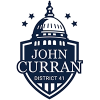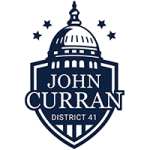Governor’s Office Daily COVID-19 Q & A
April 24, 2020
Medical
Q: What are the protocols/guidelines for taking residents’ temperatures inside long term care facilities? Specifically, for facilities that house residents under the traditional nursing home model but also houses individuals in short-term rehab, supportive and independent living. Should management be taking the temperature of all residents on a daily basis?
A: All residents at long term care facilities should be screened for symptoms and temperature, heart rate, respirations (Vital signs) and pulse oximetry should be taken every 8 hours (Q8 hours). Blood pressure may be taken once a day. Specific guidance for long-term care facilities can be found on DPH’s coronavirus website http://www.dph.illinois.gov/topics-services/diseases-and-conditions/diseases-a-z-list/coronavirus/long-term-care-guidance.
Professional Licensing
Q: Can Occupational Therapy providers offer out of state services for patients requiring rehabilitation? For example, parts of Southern Illinois and the Quad Cities are bordered by other states and often have people travel to Illinois facilities.
A: Please refer to one of the following scenarios most applicable:
Scenario 1: If an Illinois patient travels to a bordering state for care and that care takes place in the bordering state, then the provider does not need an Illinois license.
Scenario 2: If the provider is practicing in Illinois, then they need an Illinois license.
Scenario 3: If the provider is in a bordering state but has a pre-existing physical relationship with a patient from Illinois and that patient is now stuck in Illinois due to the Stay-at-Home order, that provider can treat that patient via telehealth without an Illinois license.
Scenario 4: If a bordering state provider is seeking to provide care to an Illinois patient via telehealth and there was no previous existing professional relationship, that provider needs a license from Illinois or can apply for a temporary permit to practice via the COVID 19 out-of-state forms https://www.idfpr.com/Renewals/Apply/Forms/F2398.pdf.
Parks and Recreation
Q: With respect to fishing and boating under the new Stay at Home Order, what about a family who resides in the same household? Are they not allowed to be in the same boat?
A: Beginning May 1st, two people will be permitted on a boat at a time. The two-person limit applies regardless of the relationship of the people to each other or whether they reside in the same household.
Q: The new Stay-at-Home order will allow some State Parks to open, however there are other Fish and Wildlife Areas that were not included, including some that are primarily fishing lakes with little or no picnic type areas where people could congest, maintaining social distancing guidelines. Will other parks be considered for opening?
A: Protecting the health and safety of site visitors, staff and first responders is the state’s highest priority. IDNR, IDPH, and the Governor’s Office worked together to develop a list of state parks, fish and wildlife areas, recreational areas and historic sites that considered many factors including providing ample acreage to accommodate social distancing directives, on-site staff and accessible restrooms, and running water for hand washing facilities.
IDNR will continue to work closely with IDPH and the Governor’s Office as directives change to further assess sites.
Q: Some local campgrounds have asked about opening for transient, single night stays only, since hotels have remained open. Can campground open?
A: Campgrounds are not considered essential services under Executive Order 2020-10 and as extended by Executive Order 2020-18. For specific inquires on essential businesses, please contact DCEO at 1-800-252-2923 or CEO.support@illinois.gov.
Essential Businesses
Q: Will Hair Stylist and Barber Shops be able to open May 1st under the new Executive Order?
A: Hair Stylists and Barber Shops are not considered essential services under Executive Order 2020-10 and as extended by Executive Order 2020-18. For specific inquires on essential businesses, please contact DCEO at 1-800-252-2923 or CEO.support@illinois.gov.
Census
Q: Why is it important to complete the Census during the COVID-19 pandemic?
A: The Census is critical to funding important public services, programs, and resources – such as healthcare, first-responders, hospitals – that are vital now more than ever. The Census determines how much federal funding will be allocated to Illinois every year for the next decade. If our population is undercounted by just 1%, the state could miss out on approximately $195 million over the next ten years. You can learn more about the Census on the U.S. Census website https://2020census.gov/.
Q: Will I receive a paper Census questionnaire in the mail?
A: All households that have not responded to the Census should receive a paper questionnaire by April 30th. The questionnaires can be mailed back to the U.S. Census Bureau free of charge. You can learn more about the Census on the U.S. Census website https://2020census.gov/.
Q: How much money does Illinois receive from the federal government for each person who completes the Census?
A: Illinois receives approximately $1,500 per resident, on average, per year for a 10-year period, totaling $15,000 per resident. You can learn more about the Census on the U.S. Census website https://2020census.gov/.
Q: How can residents complete the Census, while still observing social distancing?
A: You can visit my2020census.gov and fill out the Census now. You can also fill out the Census form you will receive in the mail (by April 30th) and return it – free of charge – to the U.S. Census Bureau. Finally, you can call 844-330-2020 to fill out the Census over the phone. They offer assistance in 59 non-English languages, including American Sign Language. You can learn more about the Census on the U.S. Census website.
Food Shortages
Q: Will food banks/pantries receive additional assistance to help with the increased need in their area?
A: The Food and Nutrition Service recently indicated that Illinois’ $15 million supplemental funding for The Emergency Food Assistance Program (TEFAP), through the Families First Coronavirus Response Act is available. Funding is allocated to our eight provider food banks throughout the state based on a federally dictated formula that accounts for average income and poverty rates. The food banks then distribute resources to food banks, soup kitchens, and shelters in their regions.

